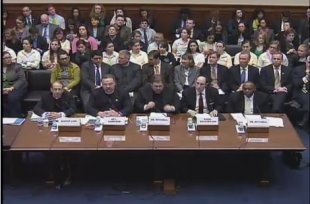Hi-dee-ho, there, FreeThoughtBorg. I know a lot of you are eager to-be activists and even more of you have a lot of philosophy under your belt buckles. But you may not know yet that being Philosophy Dudebro in a grassroots action is terribad form. And if you don’t yet know this, you need to know this. Thus, I am writing to address you today with why that is, using my experiences over the past year in pro-choice activism to provide a context. For anyone who can’t guess from the choice in terminology alone, a Philosophy Dudebro is any guy who walks up to either a demonstration being attended by a grassroots counter-protest (think pro-life and pro-choice in the same space) or a grassroots demonstration on its own (think isolated pro-choice demo) with the expectation of unlimited time, energy, and attention for playing around with thought experiments and endless debate (see also: not protesting; pointless exercise; mental masturbation). Both pro-lifers and men who consider themselves pro-choice (but who haven’t checked their male privilege at any time in the past decade) do the Philosophy Dudebro thing, and it’s equally antagonizing no matter where on the issue your politics align. Some so-called “pro-choice” Philosophy Dudebros can’t even stop themselves from their pointless exercise when they finally stop engaging the pro-lifers.
Trigger warning: This post makes brief mention of graphic depictions of genocide, ethnic cleansing, mass murder, and abortion—one of these things is not like the others—in the context of these histories being blatantly misappropriated by “pro-life” campaigns to “unmask the genocide” and “end the killing”. It’s disgusting. It’s beyond words. In fact, it’s just plain obscene. This is why I treat the entire pro-life movement as a hate movement of Westboro Baptist Church calibre.
Tone Police warning: I’m using a fair amount of profanity in this post because I am aggressively challenging the blood-boiling sexism embedded in this issue. This choice is deliberate but well-controlled and not at all impulsive. I am not going to play nice with people who critique the tone of my delivery, so just don’t bother.


